Article Contributed by Jake Cudek
Published on July 23, 2024
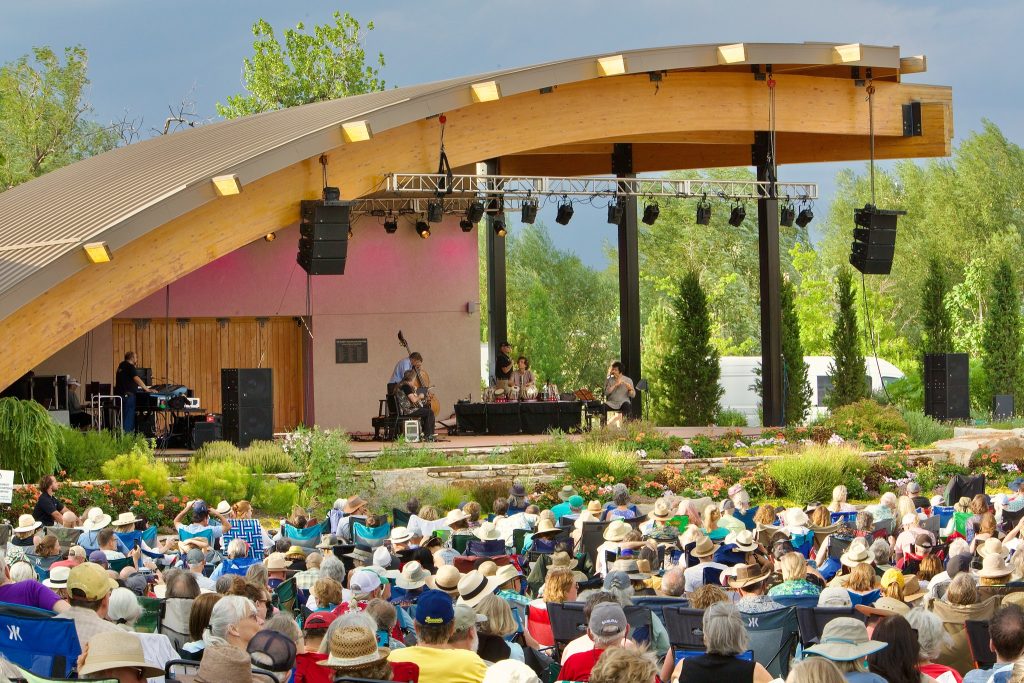
Saturday night, Fort Collins was the site of the penultimate tour stop of the world music celebration of the Grammy-award-winning “As We Speak,” created and performed by masters of music Béla Fleck, Edgar Meyer, Zakir Hussain, and Rakesh Chaurasia. Taking home the win in both the Best Contemporary Album category and Best Global Music Performance for the track “Pashto” in 2024, this latest creation from these long-time lovers of all things musical is, as anyone familiar with their careers would anticipate: anything but easily categorized or typical. Pulling from various genres and infused with the expressions of a planet, as varied as the instruments and voices portrayed on the album, this creation is full of the unexpected.
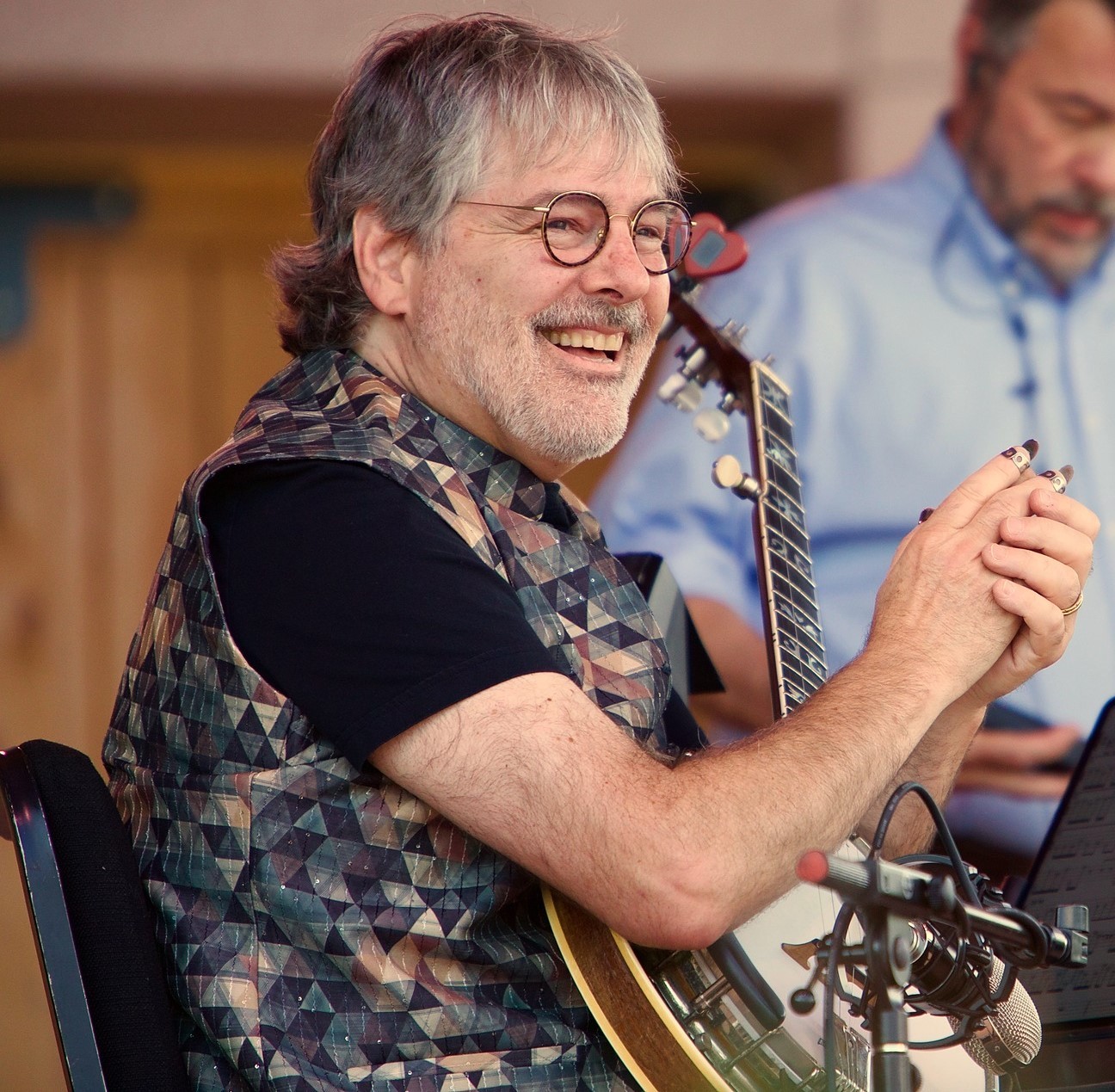
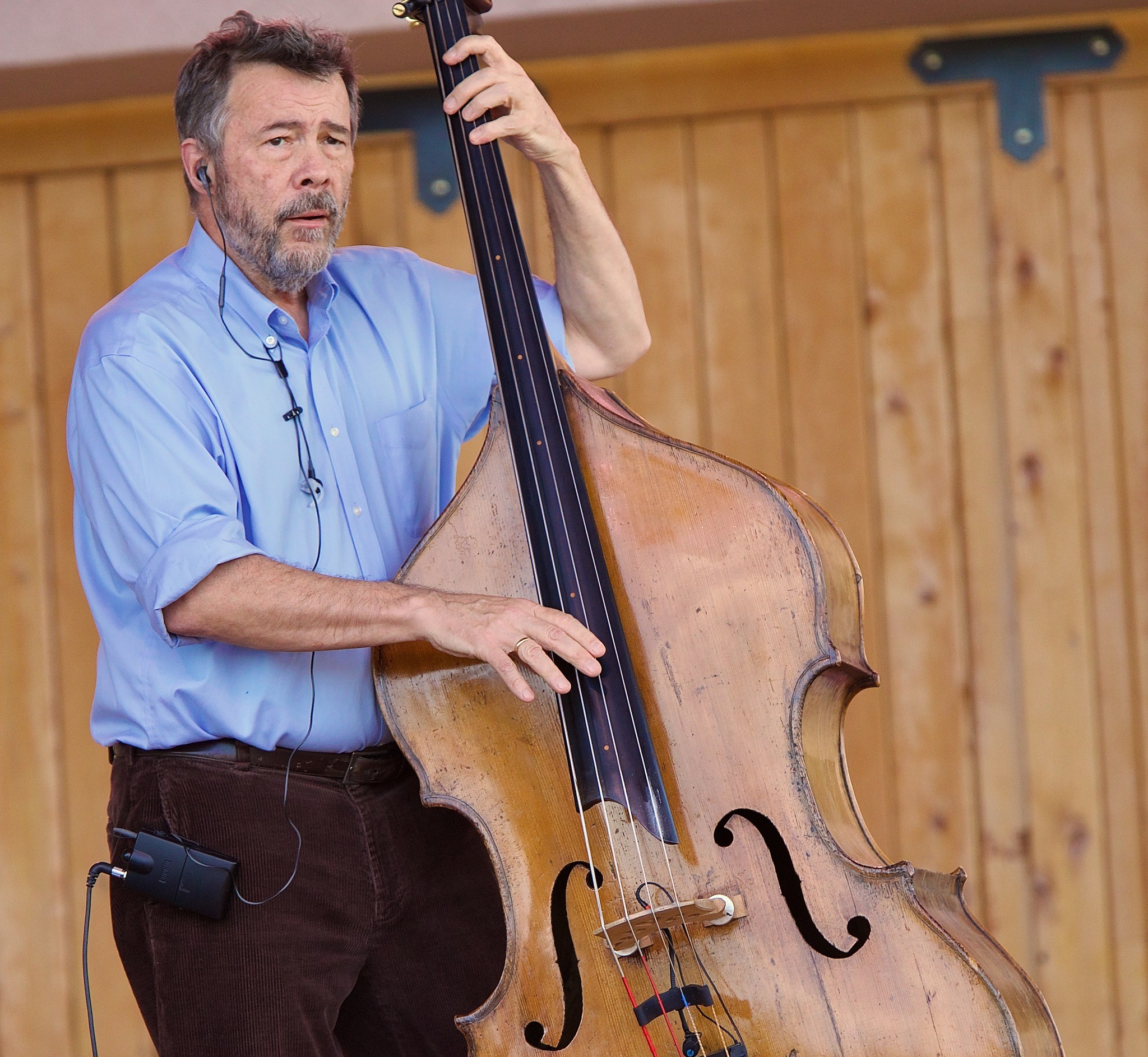
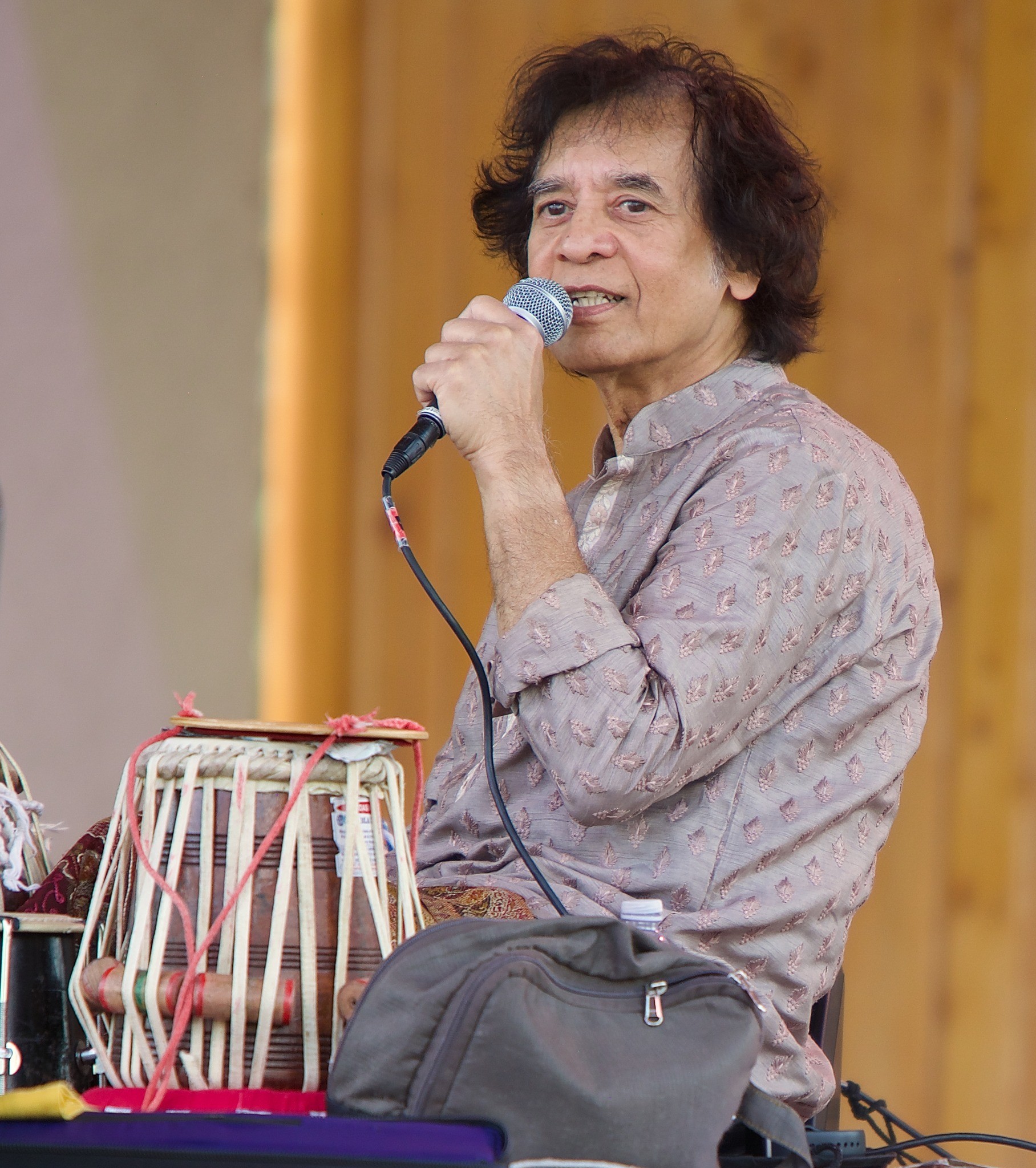
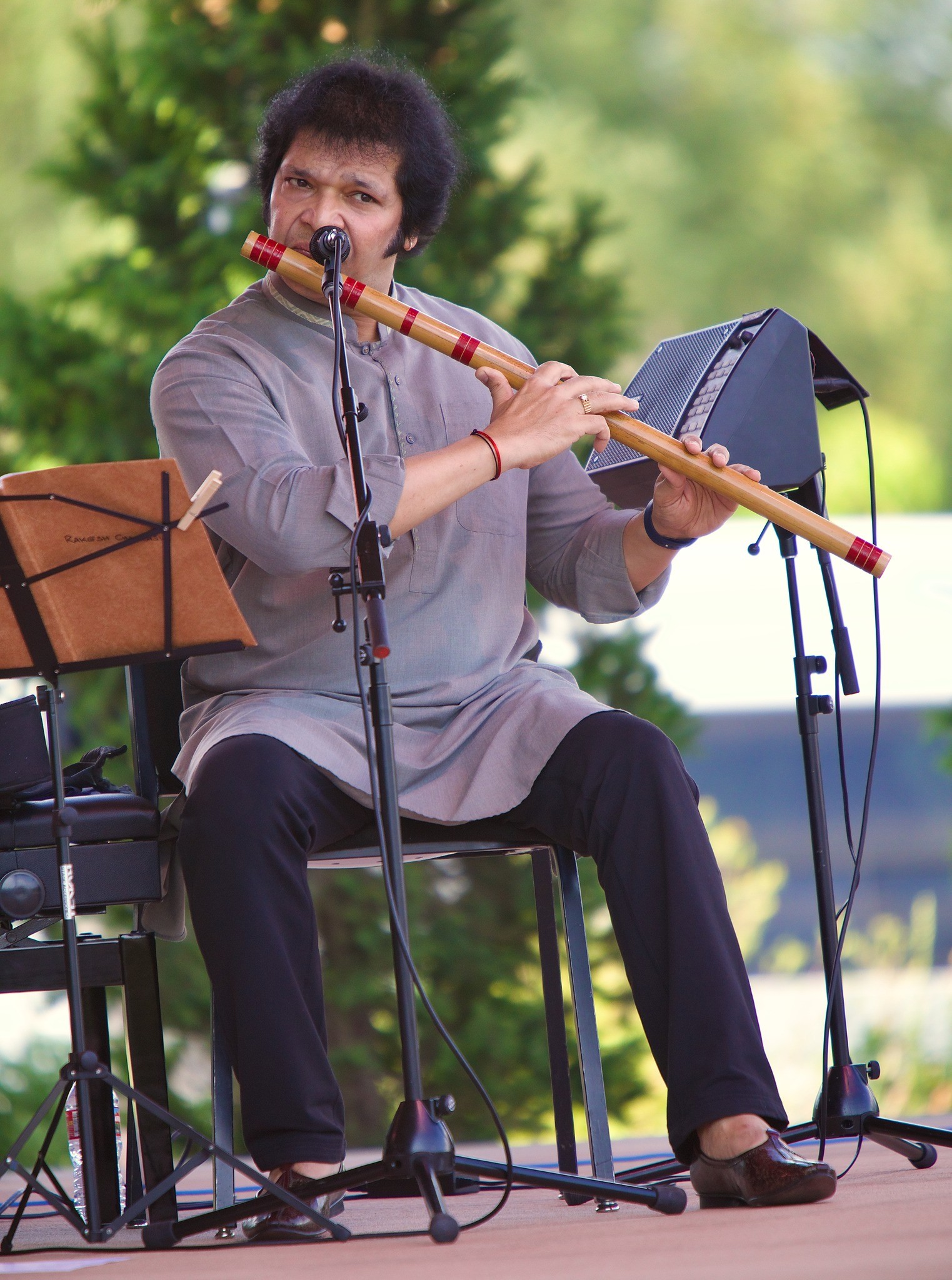
Although there are many venues in and around the northern Colorado city with the small-town feel, none would seem as appropriate as the botanical setting of The Gardens at Spring Creek to host the earthly experience put on by these tonal travelers. Centrally located in FOCO and just a block from the CSU campus, this site hosts an annual concert series that touts some significant names, including the expert talent of the evening as well as the likes of Bruce Hornsby, Stewart Copeland, and other legendary players, all the while surrounded by acres of flora, fauna, and sculpture.
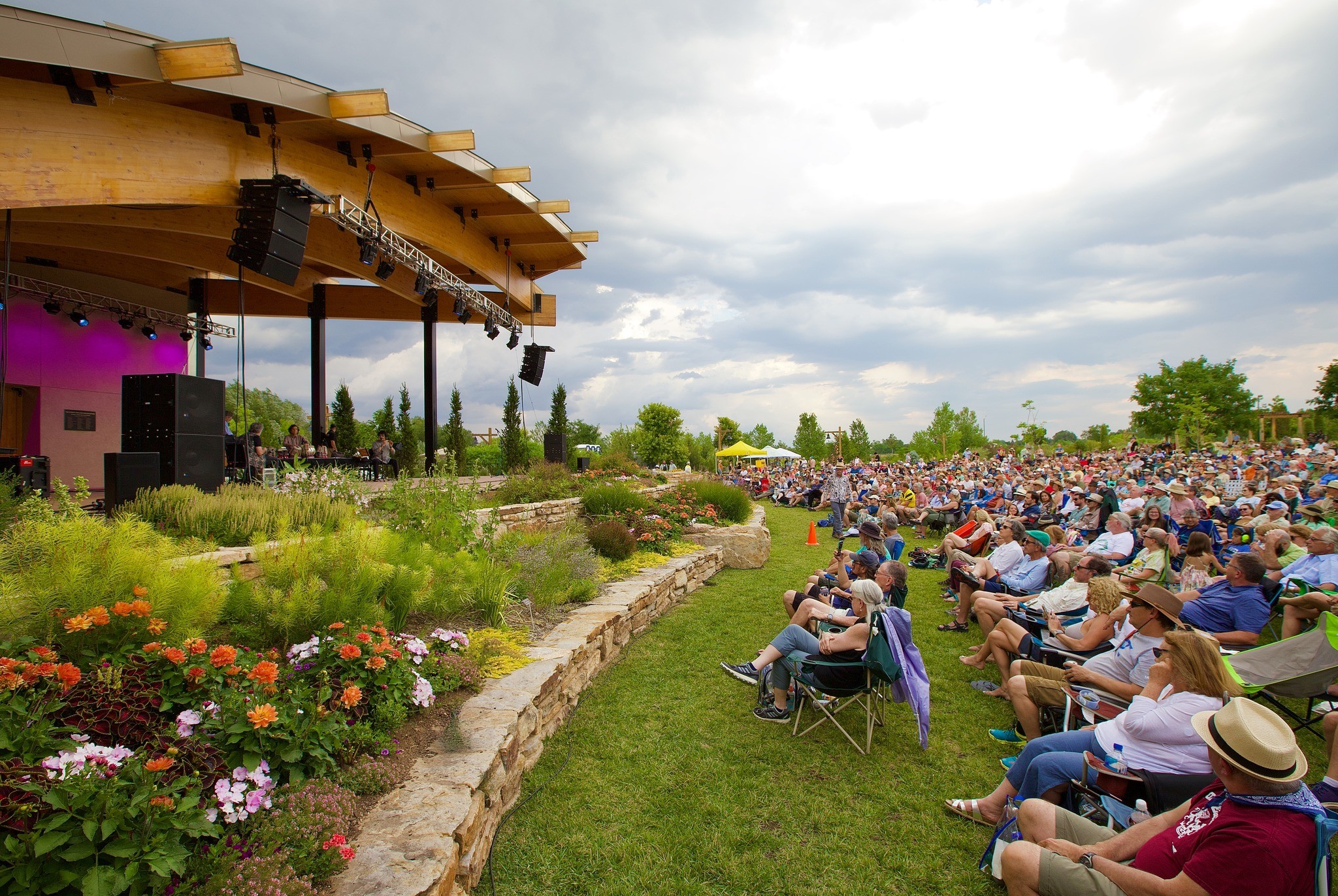
Entering the parking lot two hours before doors in order to get a prime spot for what was surely going to be an unforgettable night, only one other person, Roy, had the same intent. Positive and engaging, this music lover shared that he had been following the band for nearly a week and, although the centerpiece of all the sets he had seen had been the new album, he stated emphatically, “If they were playing ten more shows with all the same setlists and I could make them, I would be there. That’s how incredible this music is!” Elated as he spoke his sincere truth, his enthusiasm was enough to get anyone excited for the night’s offering. Although the line started with two, within an hour, it had grown significantly as we all waited in the late afternoon sun, heating everything in its path and without a cloud in the sky, staking out shelter and moving with the shifting shadows.
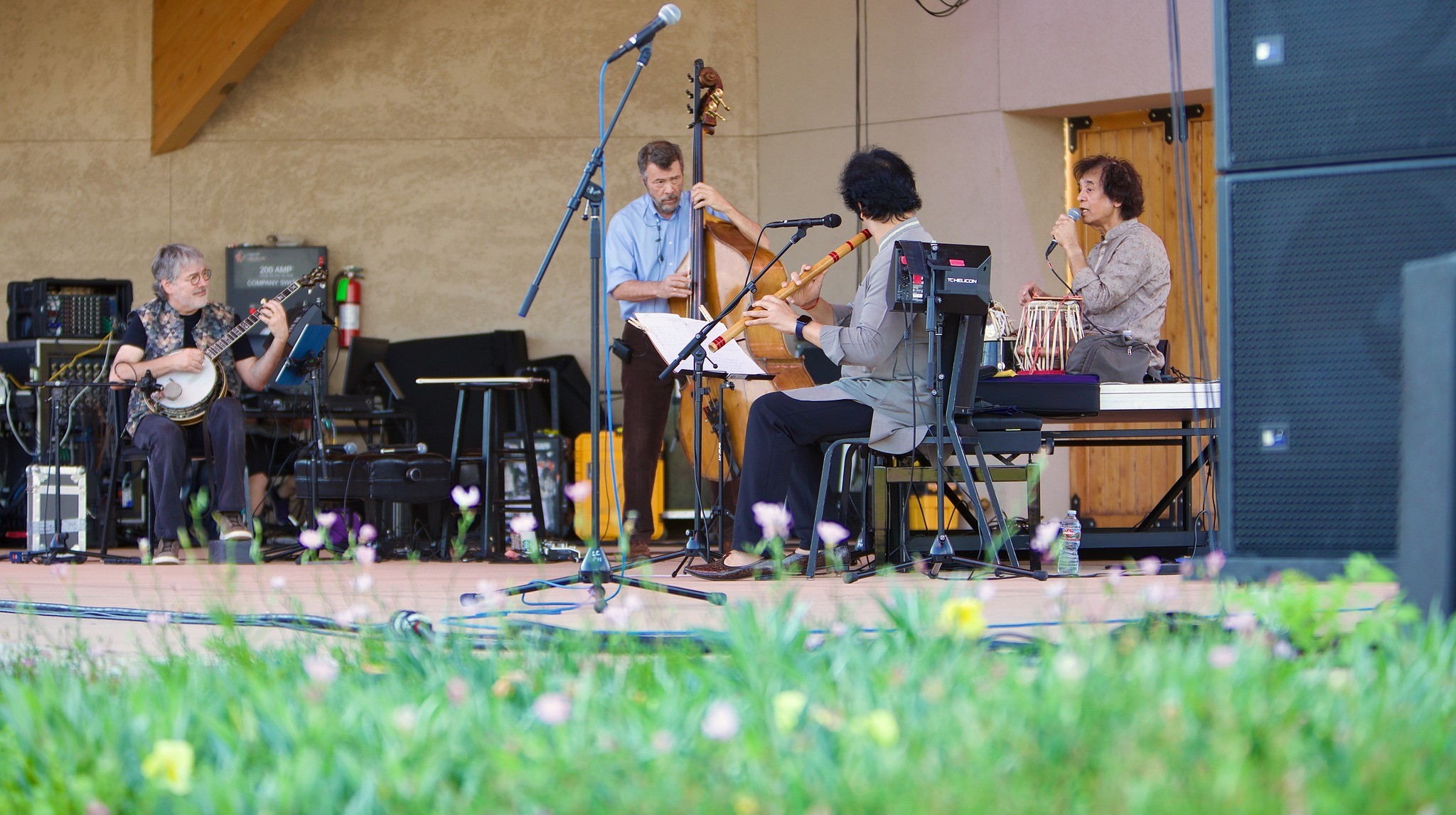
When doors finally opened, patrons were greeted by the warm faces of staff and the cool grasses of the green rolling lawn, prime real estate that all were happy to bury their bare feet in. Ticket holders of all ages walked the paths, taking in the surroundings, and once they had established their seats or blankets, many set off to peruse the sponsor booths and multiple food trucks. From fresh foods to artful eye candy as far as one could see, it is no wonder that tickets for events held here sell out almost as quickly as they are posted.
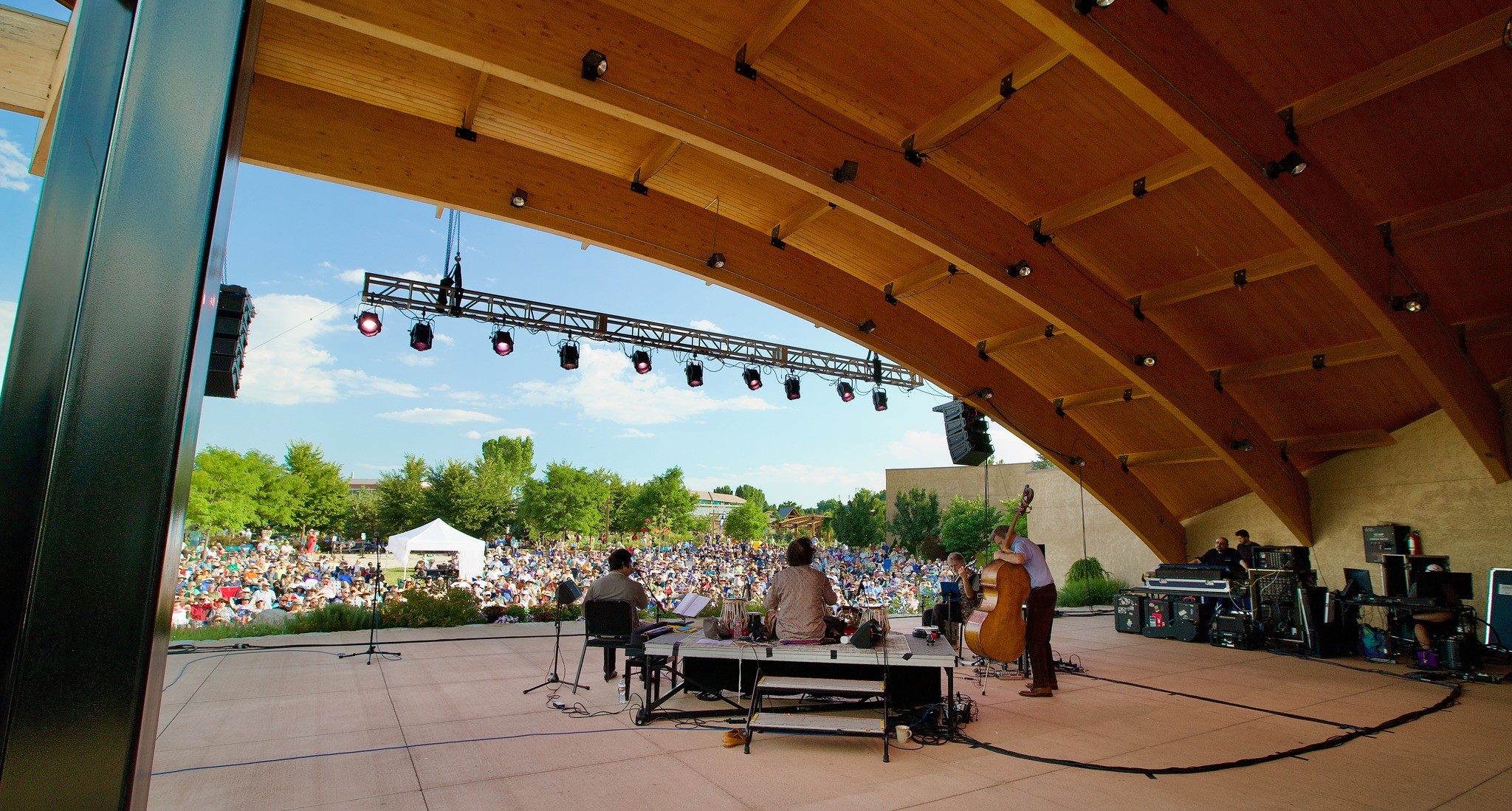
As show time drew near, it was apparent that the event was sold out as advertised, but not to the extent that anyone was uncomfortable, illustrating that the outlook of management was to produce an experience rather than a congested commodity. With most relaxed into their textiles of choice or low-backed seats, the host of the evening came out and began with a word of warning that wayward weather was a possibility and that if evacuation was called, it was to be heeded. From the looks of the sky, slowly cooking everyone where they sat, it seemed quite the impossibility, and without another word, the emcee moved into the introductions. Rattling off the accomplishments of the four legendary gentlemen one by one, the collaborators stared out into the audience, displaying deadpan as they listened to themselves being touted along with everyone else. Taking in the accolades from the announcer, when it was Béla’s turn to be recognized, he took a moment to break the monotony of awards and afforded us all with humor when his laundry list was delivered. Instead of sitting stoic, he instead decided to raise his arms and show his muscles, flexing for the crowd, finally achieving his intent: unhindered laughter from the audience, his collaborators, and of course himself.
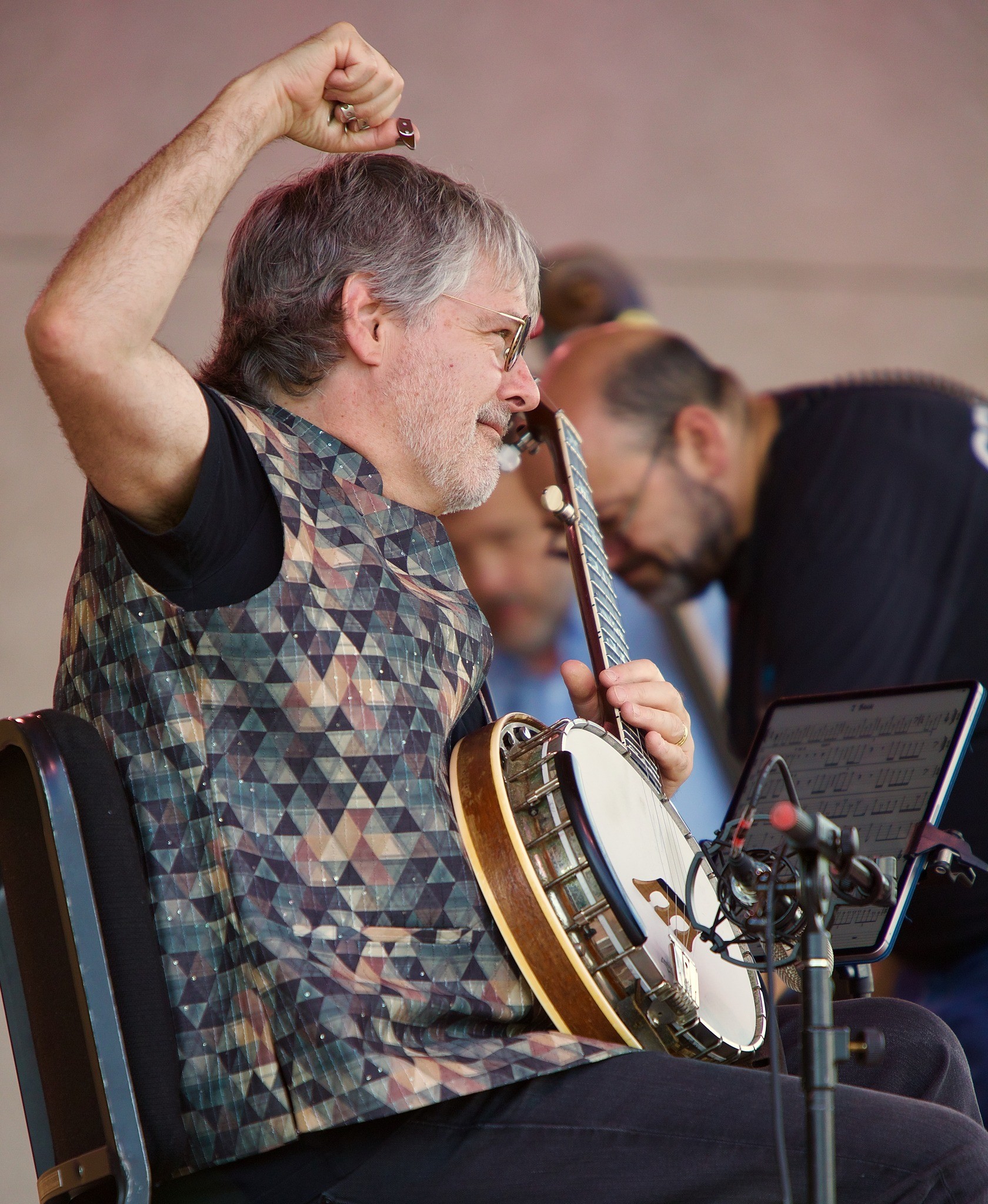
With the pantheon dismantled, everyone drew one last breath of relaxation after a good chuckle and the band got things going with the environmentally apt title “Beast in the Garden.” This quick-paced creation seemed quite unforeseen, as at its heart came this boogie groove that got many shaking their shoulders and bobbing their heads from their seated perches. The middle afforded Edgar some early soloing that roused the audience into expression and showcased Zakir’s vocal speed, delivered in diverse staccato, matched only by the speed of his lightning-quick tabla playing. Béla rolled throughout the jaunt, building and veering, filling and breaking, as Rakesh wove the breath of the bansuri throughout. At the end of the seven-minute experience, it was clear that these men were much more than masters, they were meditators, listening and living in the moment, completing the conversation compellingly.
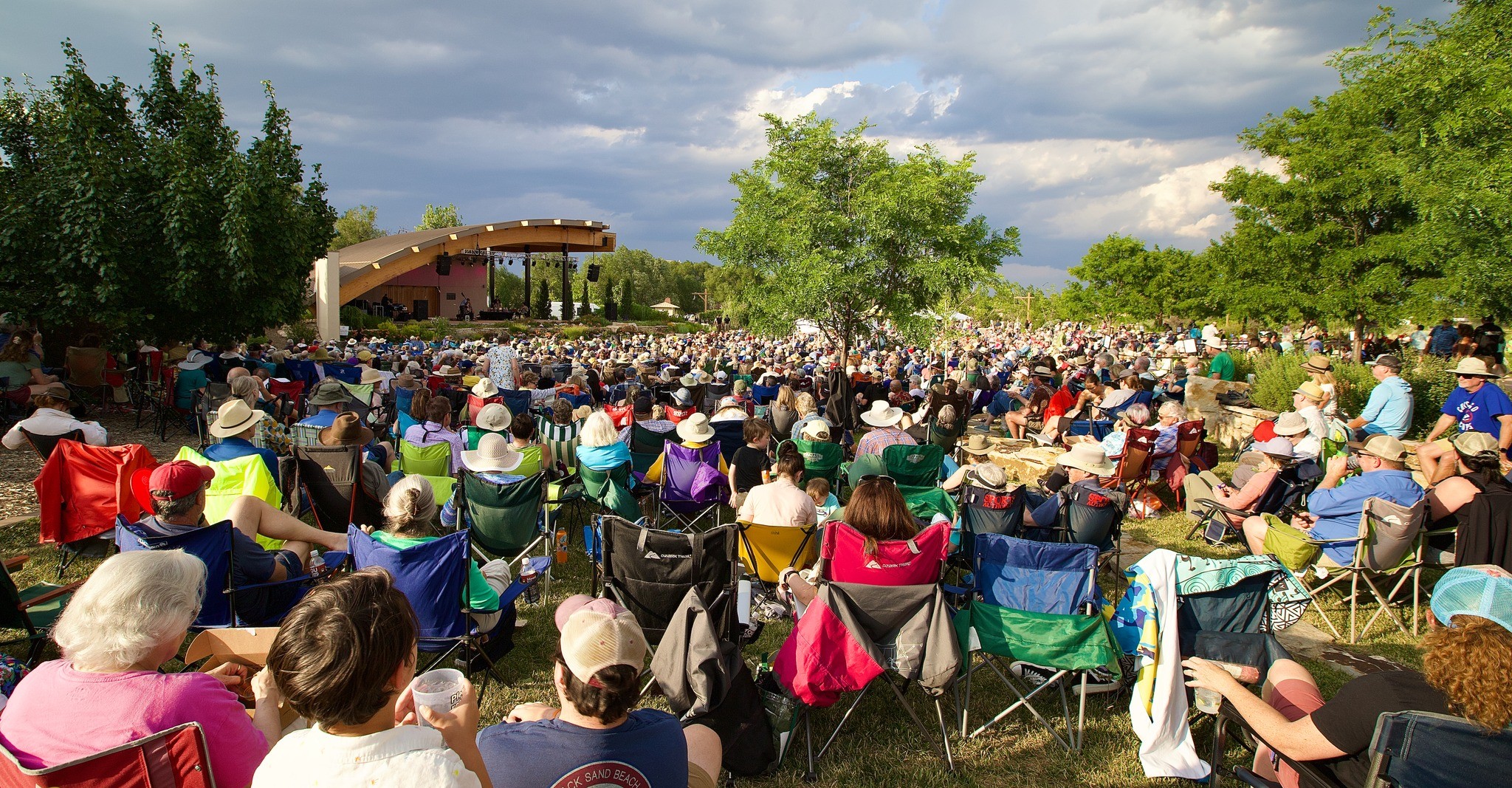
Pausing to tune, Béla, being the forever jovial spirit, addressed listeners:
“Our instruments are just getting comfortable out in this weather. They are not used to the dry heat but we are getting there. How you guys doin’? Everybody alright? We are going to party on with a tune written by Zakir and dedicated to a long musical partner of his, the great guitarist John McLaughlin. They have been doing some great music together since, dare I say, the seventies… the nineteen seventies. So, let’s try one of these cool tunes Zakir wrote.”
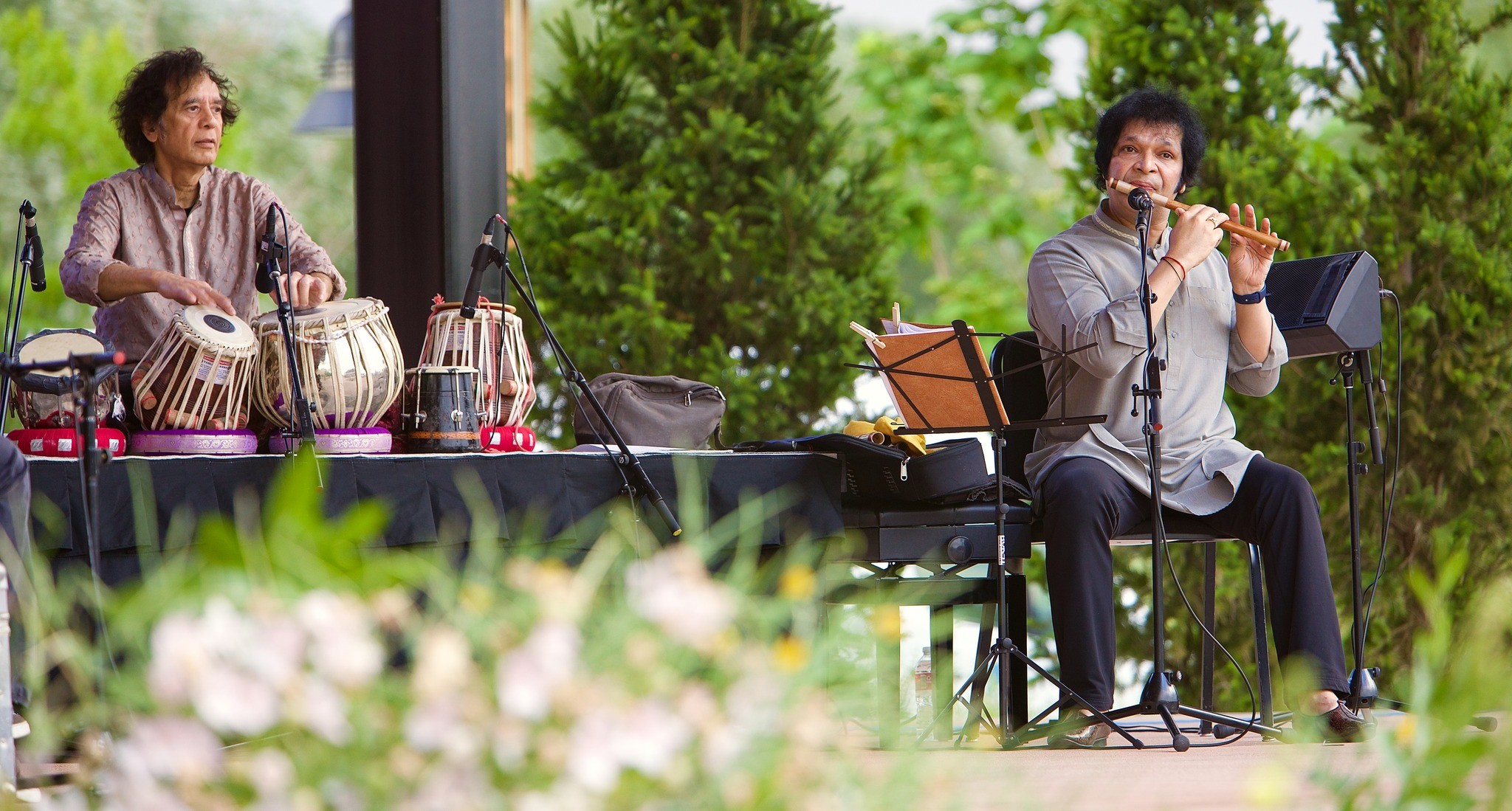
With its low moan turning like the Spring Creek outside the venue walls, “J Bhai” read as a western classical piece infused with the Indian countryside. With call and response composition, Béla and Rakesh played off each other while Edgar groaned under bow like a gentle giant through the reed and wire, Zakir’s counterpoint changing with the moment. During this performance, it was incredible to hear Rakesh engage Zakir’s rhythmic communication as flawlessly as he had begun his with Béla’s melodic conversation and then to hear the three of them come together, for the astute listener, was nothing but the purest of joy. The end built into a dizzying crescendo that drove the audience over the edge into whistle and applause.
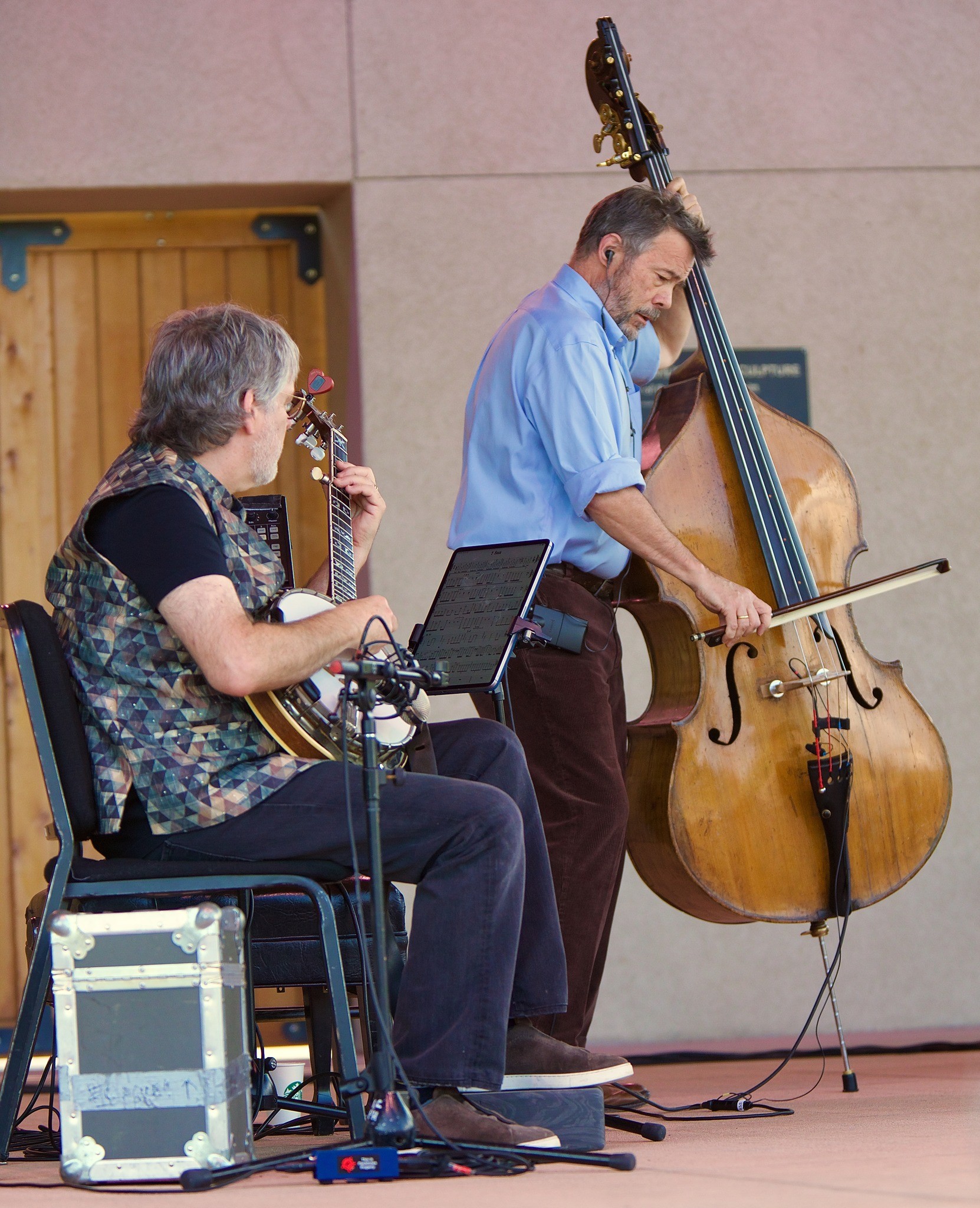
Without a word, the quartet blew into the “Tradewinds Bengali.” For this one, there was a significant amount of exchange between Edgar and Rakesh as Béla and Zakir dropped out and let the duo play off of each other for several measures. When Edgar and Rakesh relinquished the reins, Béla and Zakir complemented the experience by completing the figure eight and engaging each other as the other two watched on. Eventually, Rakesh and Edgar came back into the main theme and the atmospheric journey was back on. As if cued by the universe itself, with the final beat of the tune, the (trade)winds picked up significantly and began blowing the setlists and brows of the band as they sat under their wooden arched shelter. From the audience side, dark clouds could be seen rolling in from the northwest, full of flash and precipitation. Béla addressed the climatic change, “Very exciting up here. I guess the gods of music did not like that. Ugh!… Better we try something a little more composed and a little less improvised, it would go better. So let’s feature a great tune written by Edgar Myer, highly composed, a lot of fun to play. It is titled ‘Motion’.” Before moving on, Béla took a moment to introduce the band:
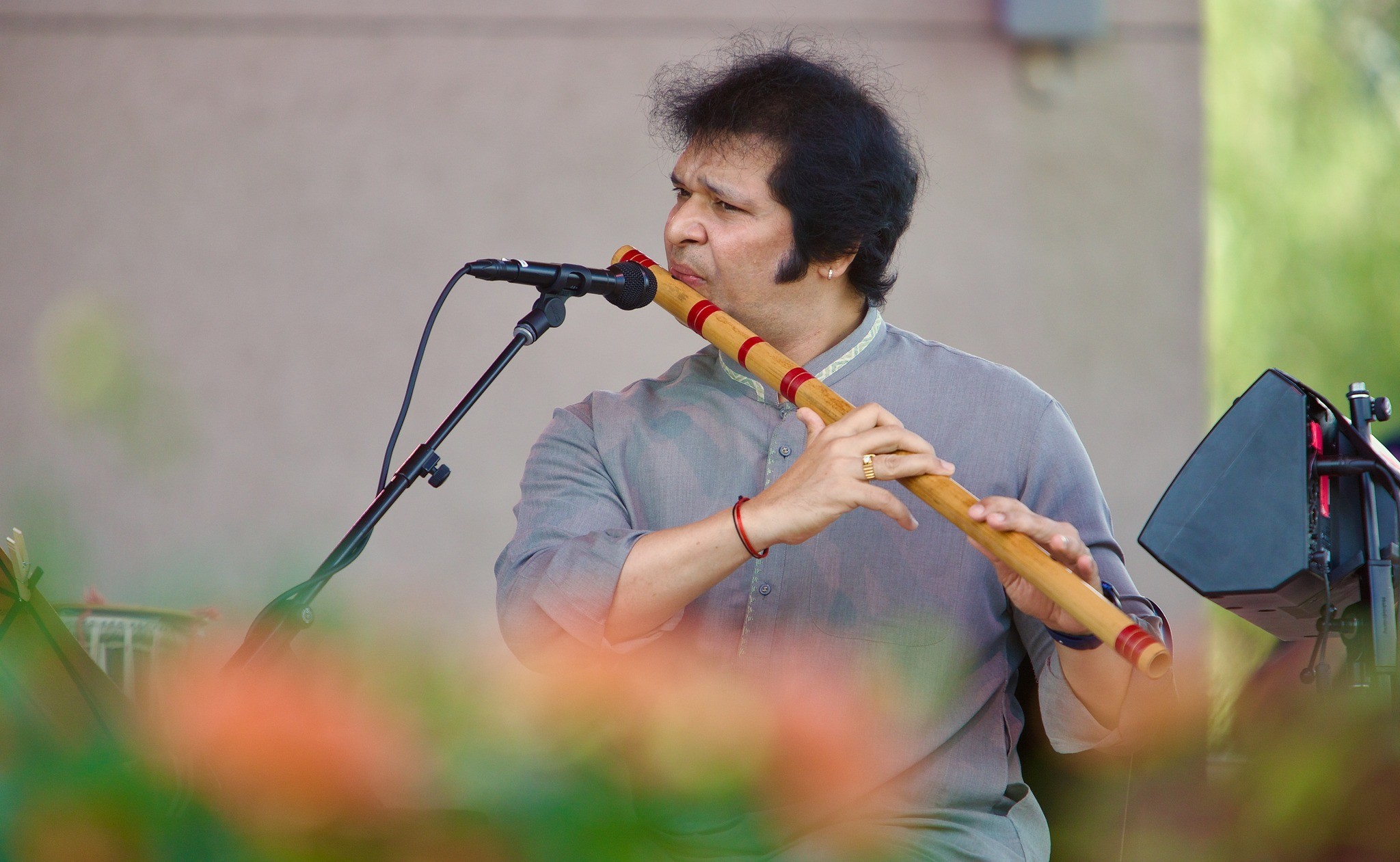
“That’s Rakesh Chaurasia on the flute, the bamboo flute, one of the greatest bamboo-zlers of all time. Edgar Myer on the bass, you know Edgar?!? and holy cow, that’s Zakir Hussain on the tablas and I am Béla Fleck for whatever it’s worth.”
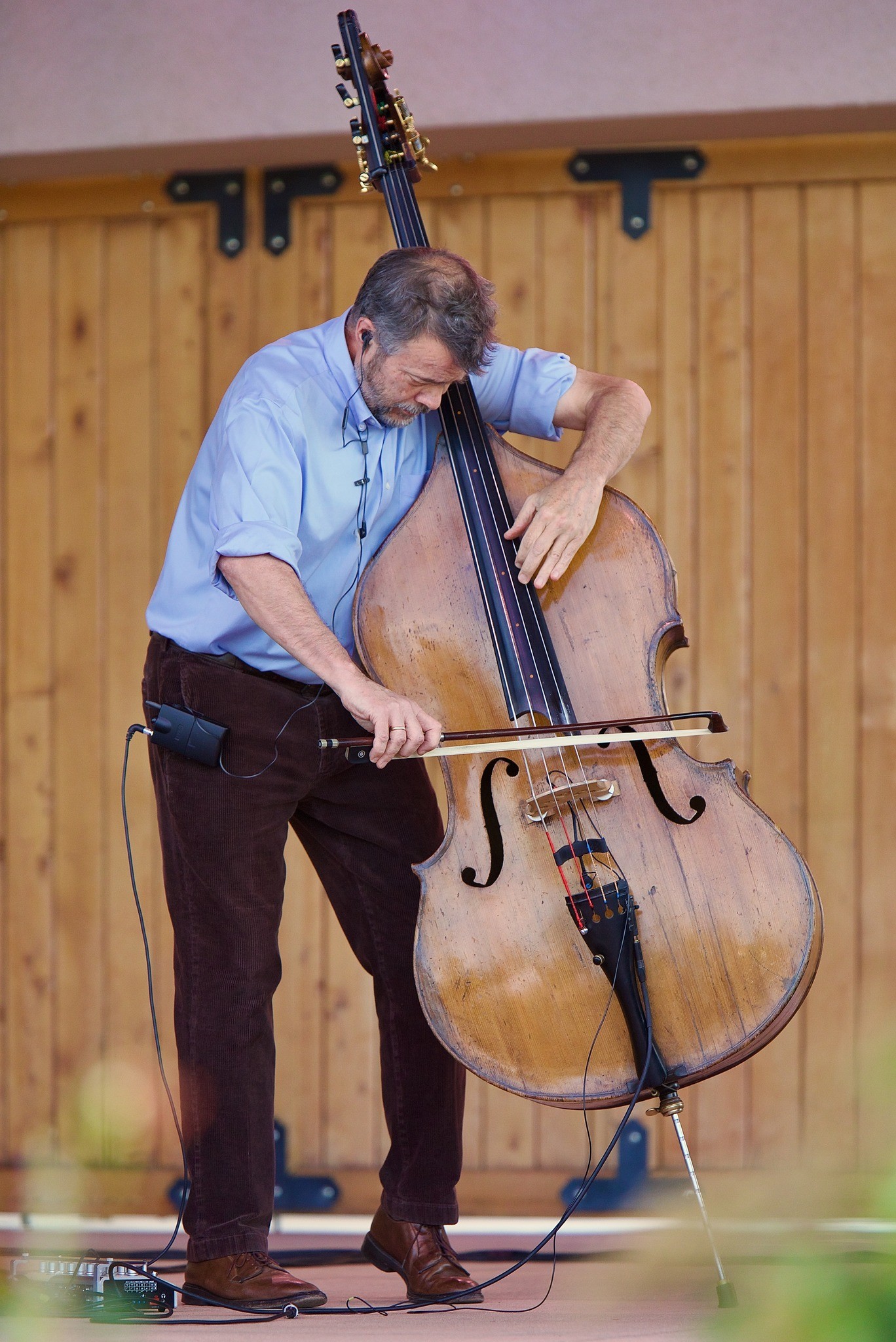
As the crowd laughed at more humor from the banjoist’s inflection, the wind stirred significantly, prompting Edgar to ask, “Should we change the song? We got a lot of ‘motion’ up here.” Béla queried, “Shall we go forward and see what happens?” a direction and a chance the crowd was audibly willing to undertake.
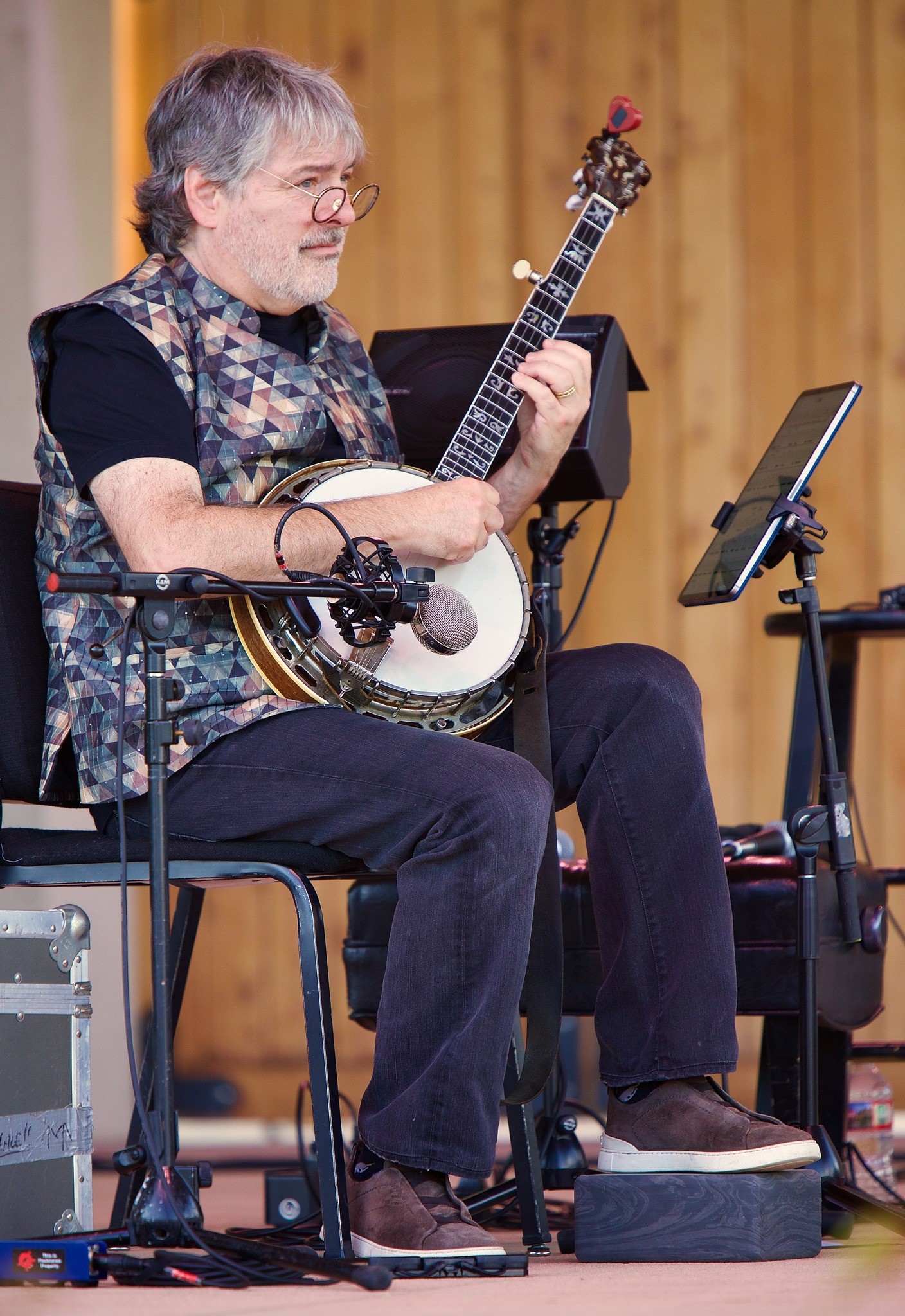
“Motion” was the epitome of the word, changing tempos on a dime and often in half measures, each band member sticking the moves flawlessly and making it look so easy. Listening with eyes closed, this one boggled the sensibilities as the players played in unison, in pairs, and outside of each other in odd times, weaving a textural fabric that was nothing short of ornate. Whereas the previous tunes extended multiple minutes past the track timings of “As We Speak,” this one, probably due to its admittedly highly compositional nature, lines up quite in time with the studio release.
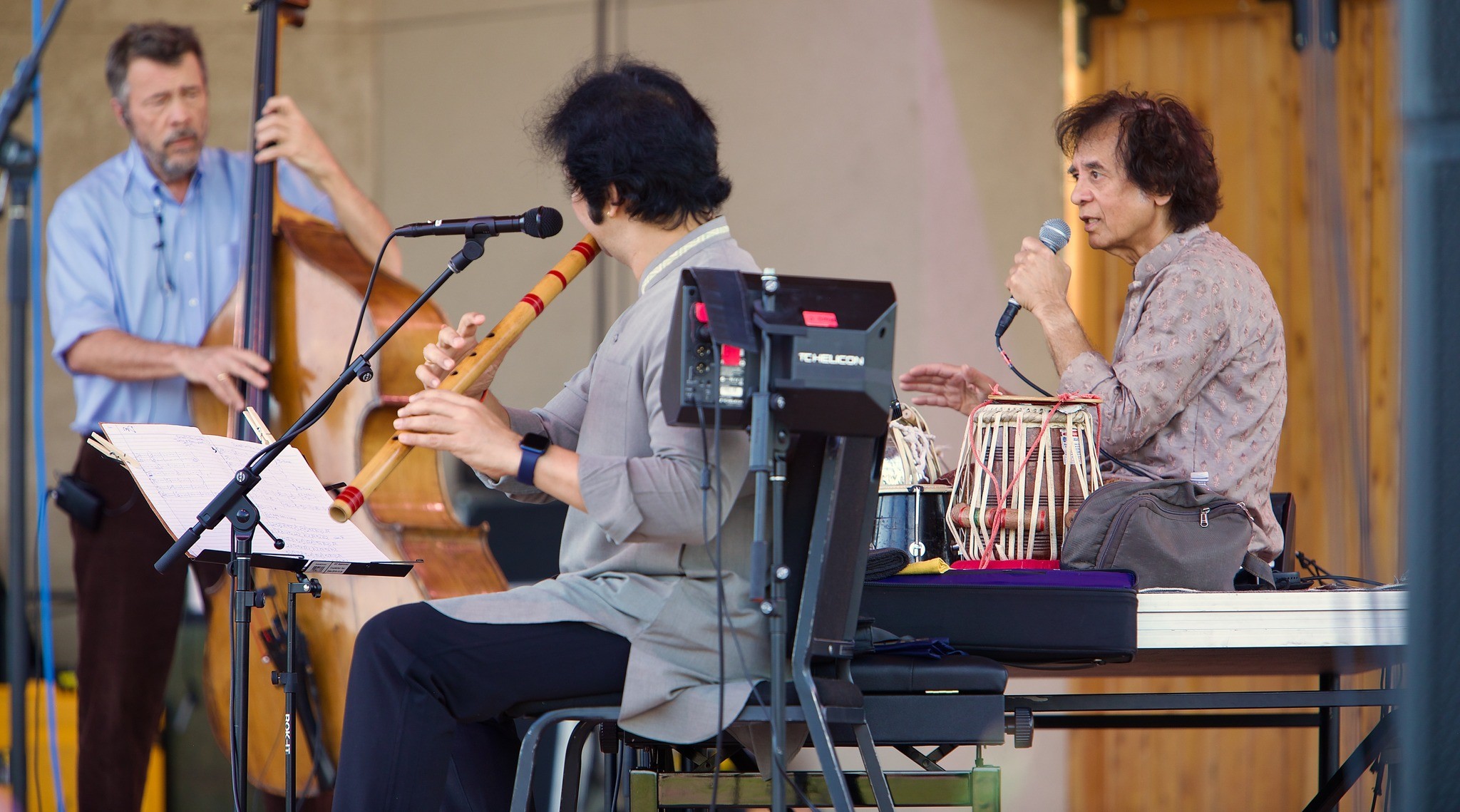
Zakir’s “Pashto” began under long-bowed direction by Edgar and Rakesh opening the chakras with beautiful lines of reverence. Raskesh’s bansuri playing eventually moved from meditation to dance and rebound with focused flitter and an uplifting voice. Two minutes in and Edgar stood solo under his towering bass, eyes closed, and poured forth from the inside out, his face twisted as his brethren looked on. Finesse eventually gave way to fire and as the pot boiled over, Rakesh returned soothing the burn, pulling everyone back on board into a unified voice of delectable delight, flavorful and sweet. With the four speaking as one, the tail end of this took to the skies, the group’s outpouring erupting at a blinding speed, faster and faster, until they all yielded to the same note in a charged instant, sending the crowd into overt appreciation.
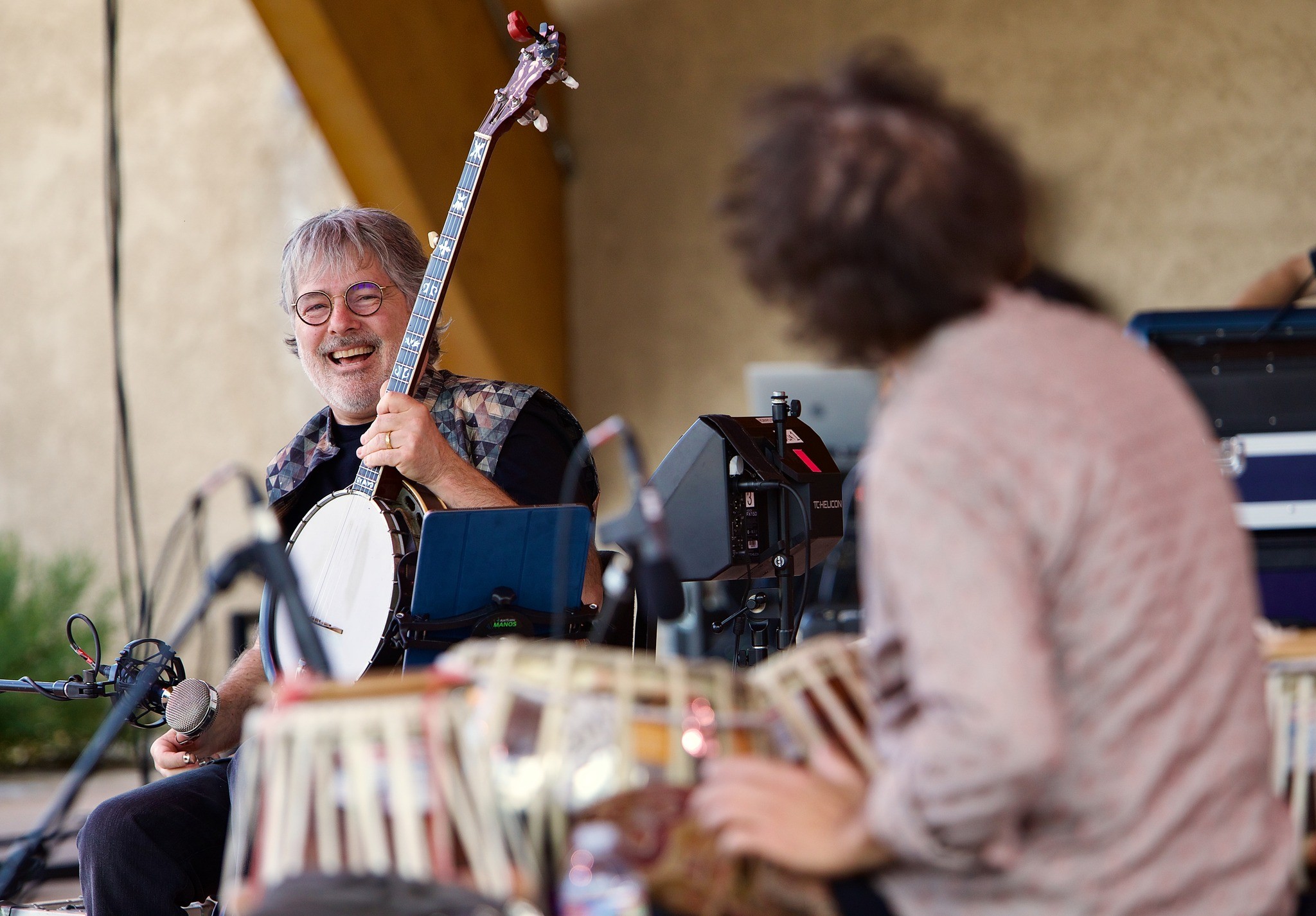
Introducing the next tune as “one about those times when you think, I must have done something to deserve this,” Béla announced “Rickety Karma” as the next selection.
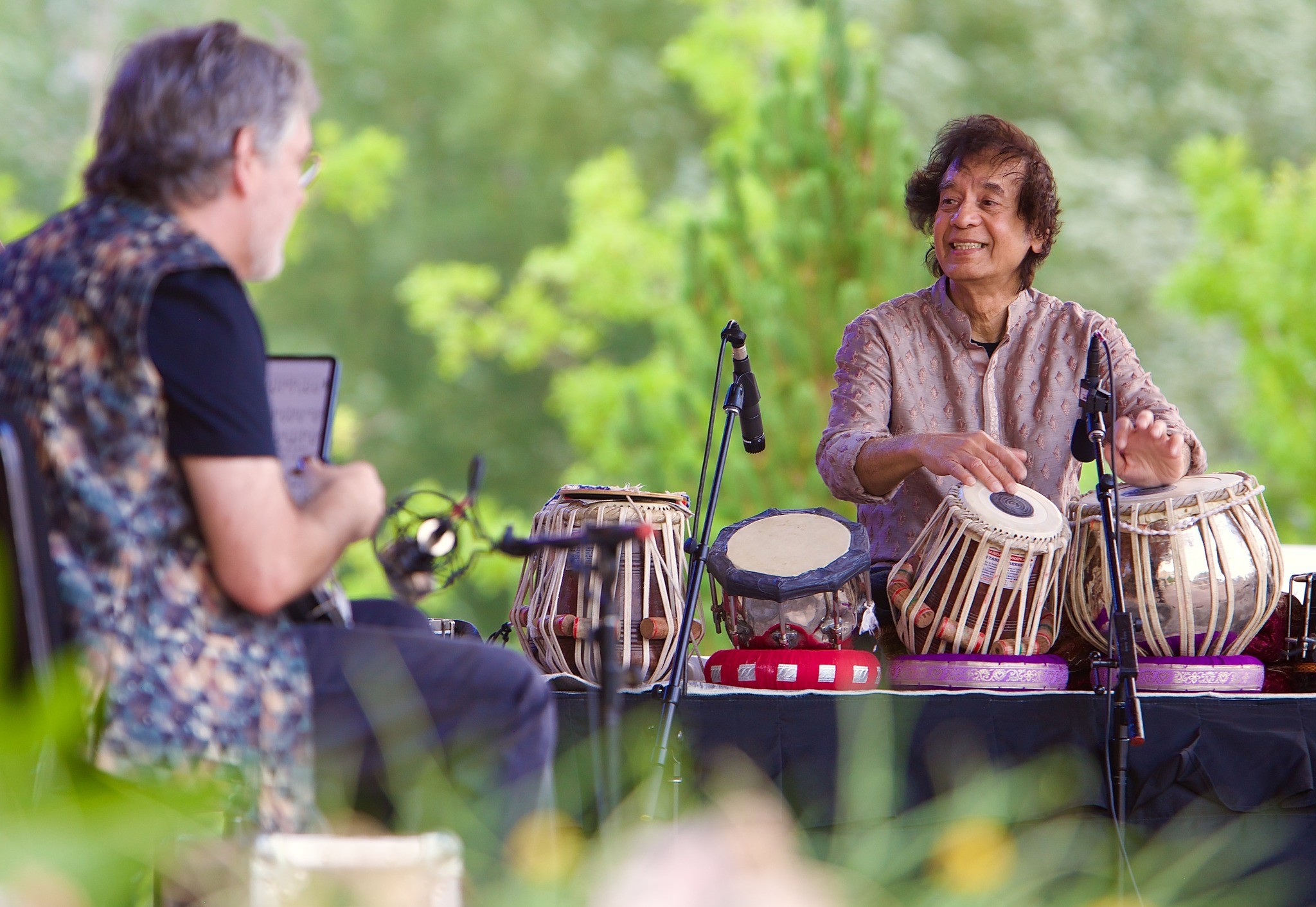
Pausing here for a moment to set the scene, at this point in the show, the audience had gone from being baked by the sun with little to no shade to take refuge in to now finding relief under ominous clouds, cooler temperatures, and some significant wind, all of which seemed to transition coincidentally under the playing of “Tradewinds Bengali,” a tune that was neither announced nor named from the stage, and for most, was probably still a mystery. For those present in the moment, it was hard to refute that there was magic in the air and, as if again on a cosmic cue, as soon as Béla finished his descriptor and the song title for the next selection, a large hawk flew up from the creek running behind the stage and perched itself atop the stage structure. Landing, the raptor sat looking over the crowd, unhurried and undisturbed, taking in the moment as the ‘oohs’ and ‘aahs’ came over the crowd, the onlookers pointing, smiling, and clapping. It is for certain that many sat there thinking to themselves that, “I must have done something to deserve this.” When the hawk was done with its survey, it resumed its hunt for the next moment and flew in the northeastern direction.
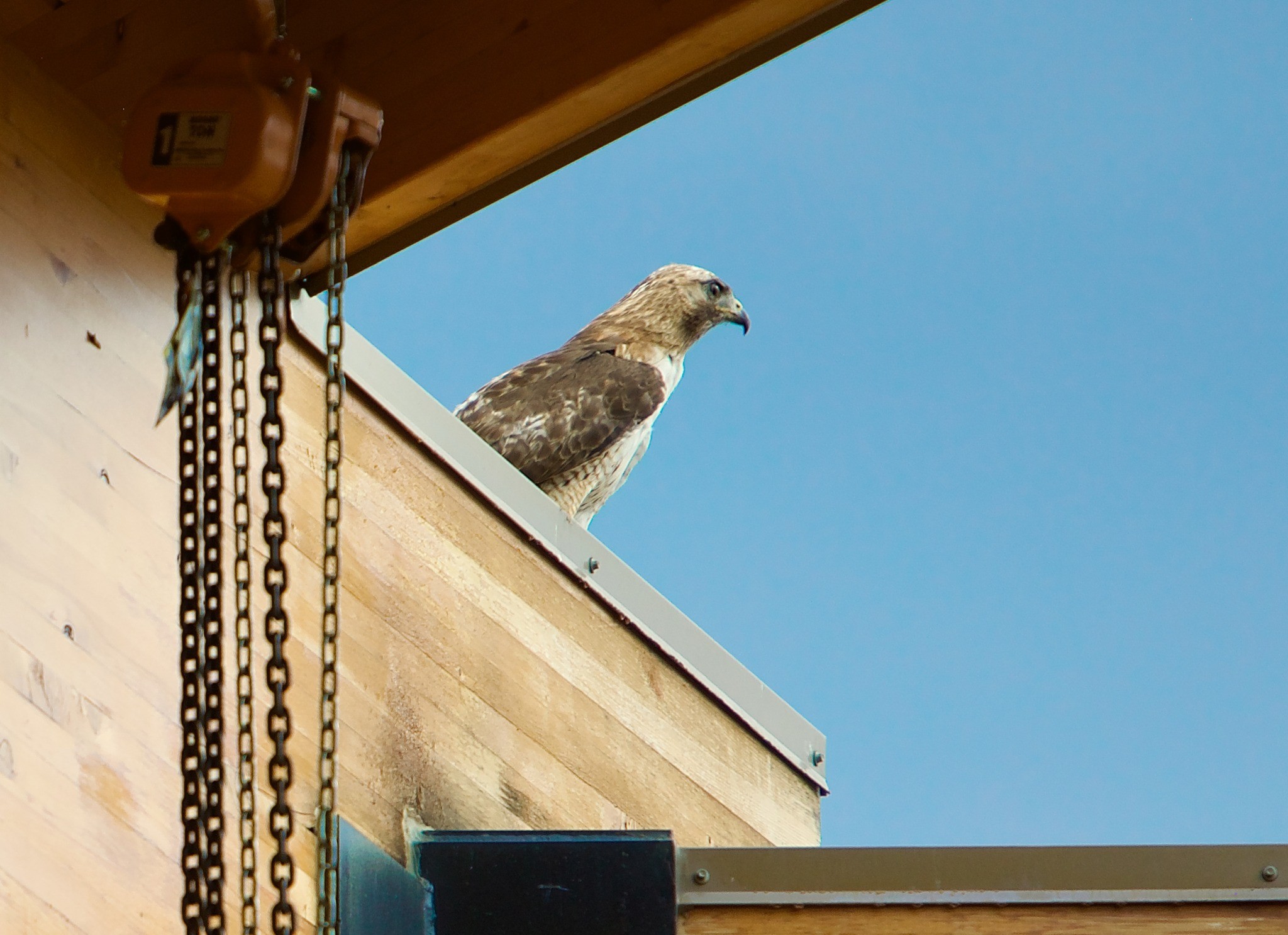
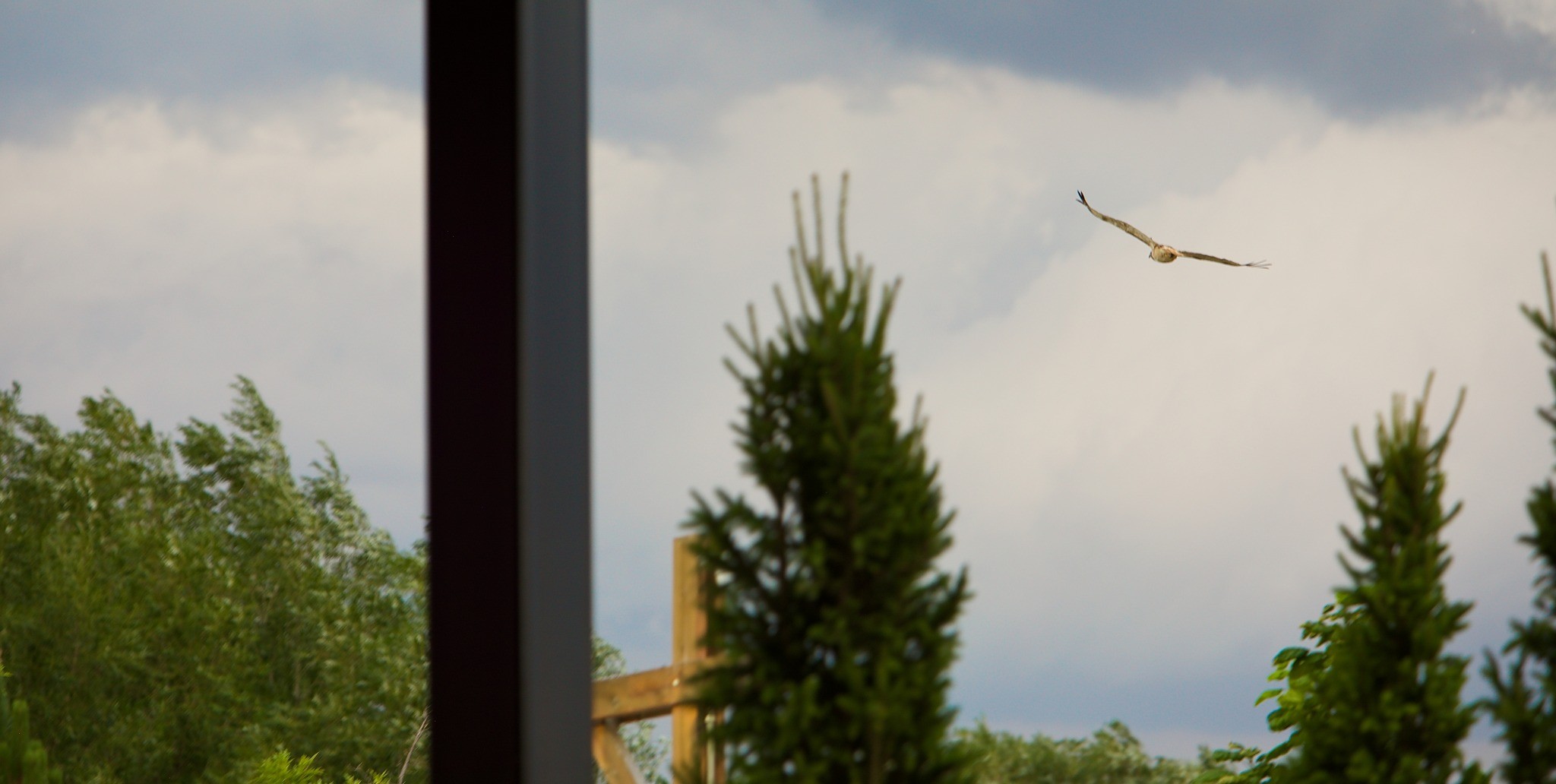
Capitalizing on the shared moment, Béla stated, “Maybe not so rickety after all? I guess we will find out,” lighting the crowd up even further. Adding further comedy to the fire, Béla closed with, “I never saw a chicken so beautiful,” spawning laughter among the patronage and especially from Zakir. Getting in on the joke, the seemingly quiet and reserved Rakesh chimed in, “We will have dinner later,” conjuring more laughter from the audience.
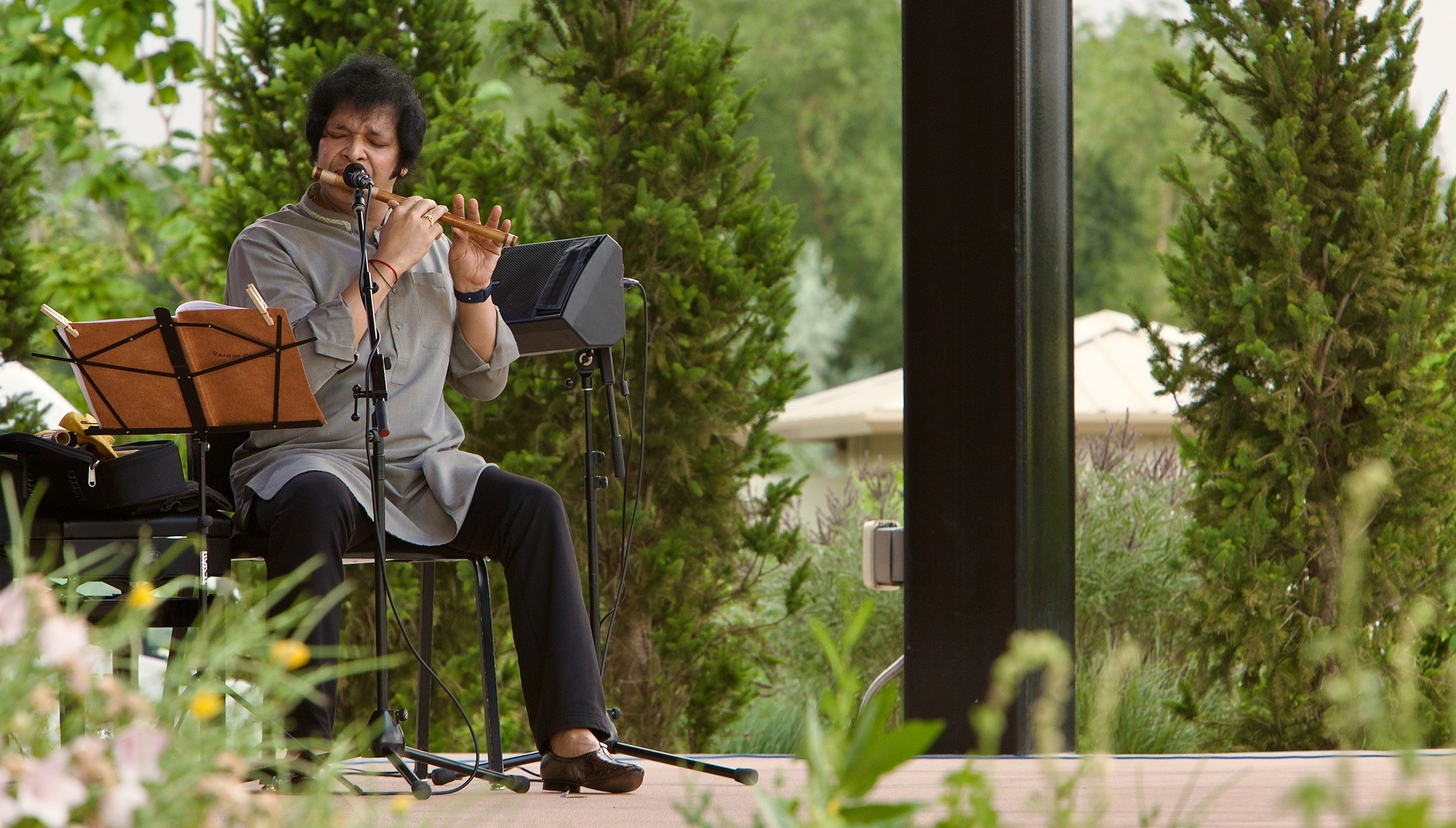
Getting into it, “Rickety Karma” was playful and bounced like a wagon, a rickety one if you will, on a rutted road, its passengers happy to be going along for the journey for the scenery alone. It, like so many tunes of the night, was intricate and light and showed how well music can be performed and exchanged when those playing and those listening are open to the moment, filled with appreciation, letting the universe deliver on what we deserve. It should also be mentioned that from the exit of the hawk and the onset of the karmatic vehicle, in a field populated mainly with older folk, a small girl appeared, seemingly out of nowhere or having gone unnoticed, in the center of the front row and danced with such an open heart and a wide beam, her arms in the air as she spun, that anyone who took notice knew exactly the definition of a perfect moment.
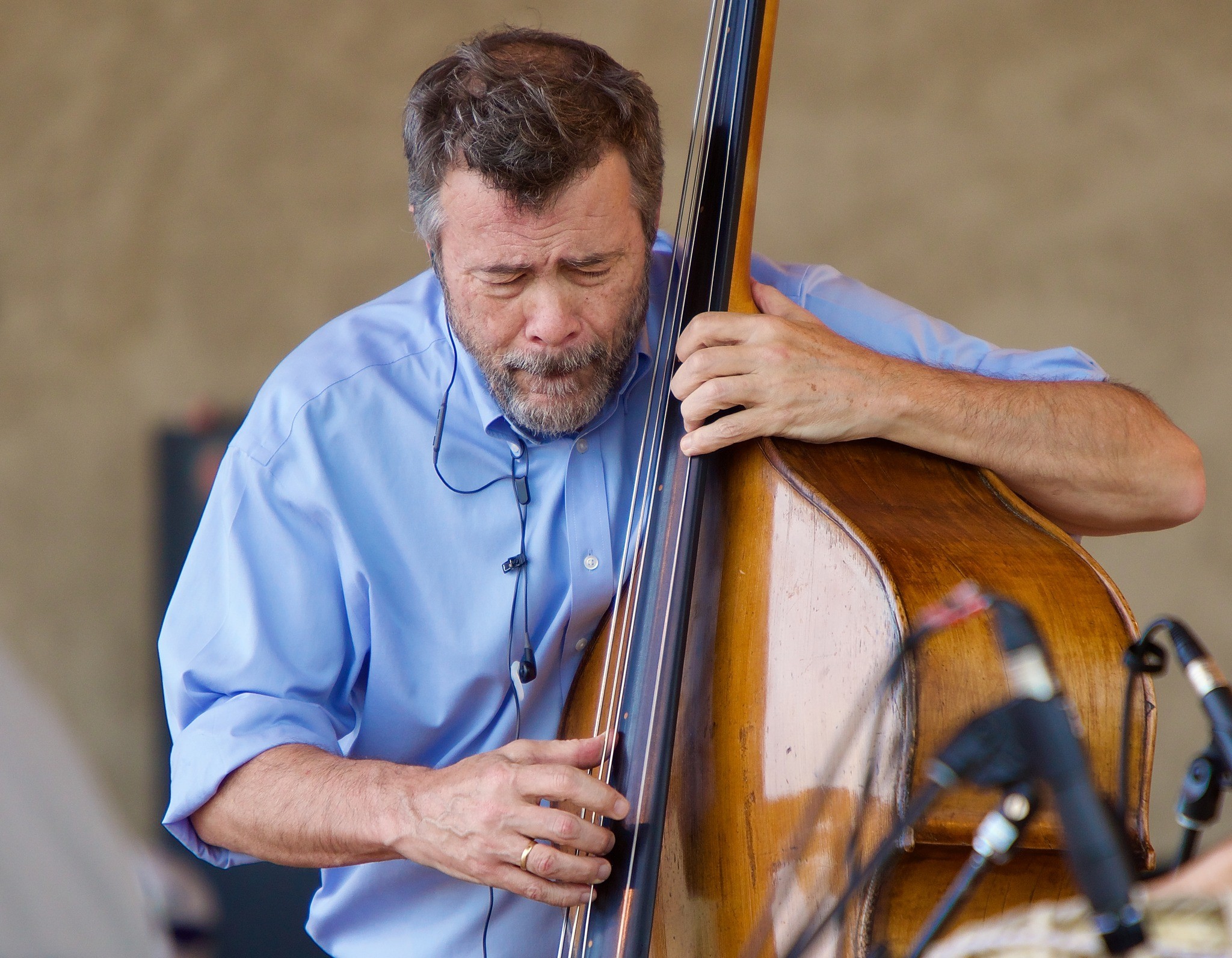
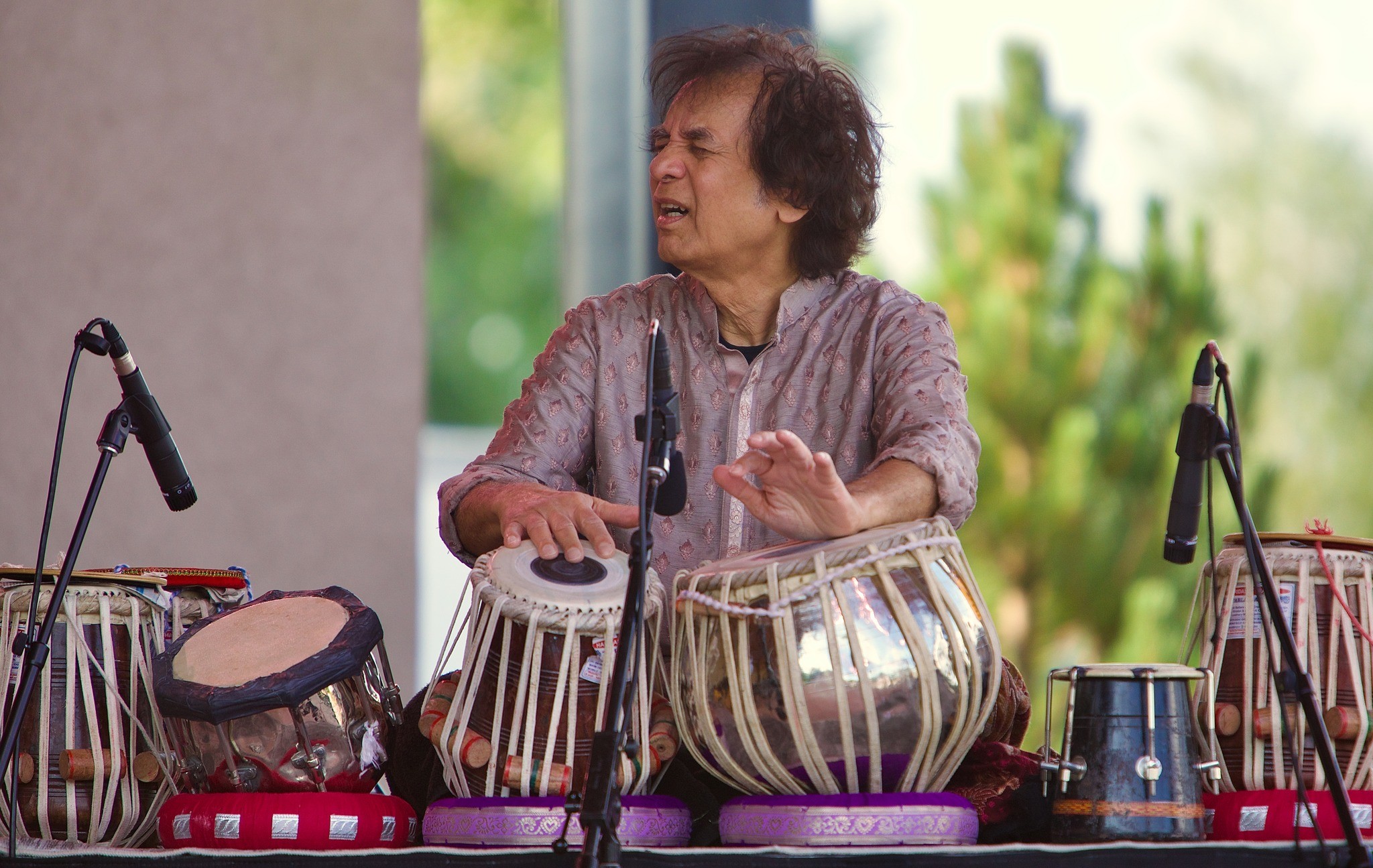
With a field full of smiles born out of an instance well-lived, everyone, band and patron alike, was ready for another hour of tonal transcendence. With the band tuning up and preparing for “Hidden Lake,” a member of management quickly approached the microphone, heavy with apology, and announced that all guests were being asked to leave to shelter in their cars. With those words, the rain started to fall heavily, and flashes of heavenly light drew closer followed by the low-end resonance that was not brought on by Edgar Meyer. As everyone gathered their belongings and packed what they could, the band did the same, signaling that although we had an hour to go and there might be hope for more, the truth was that mother nature had other plans.
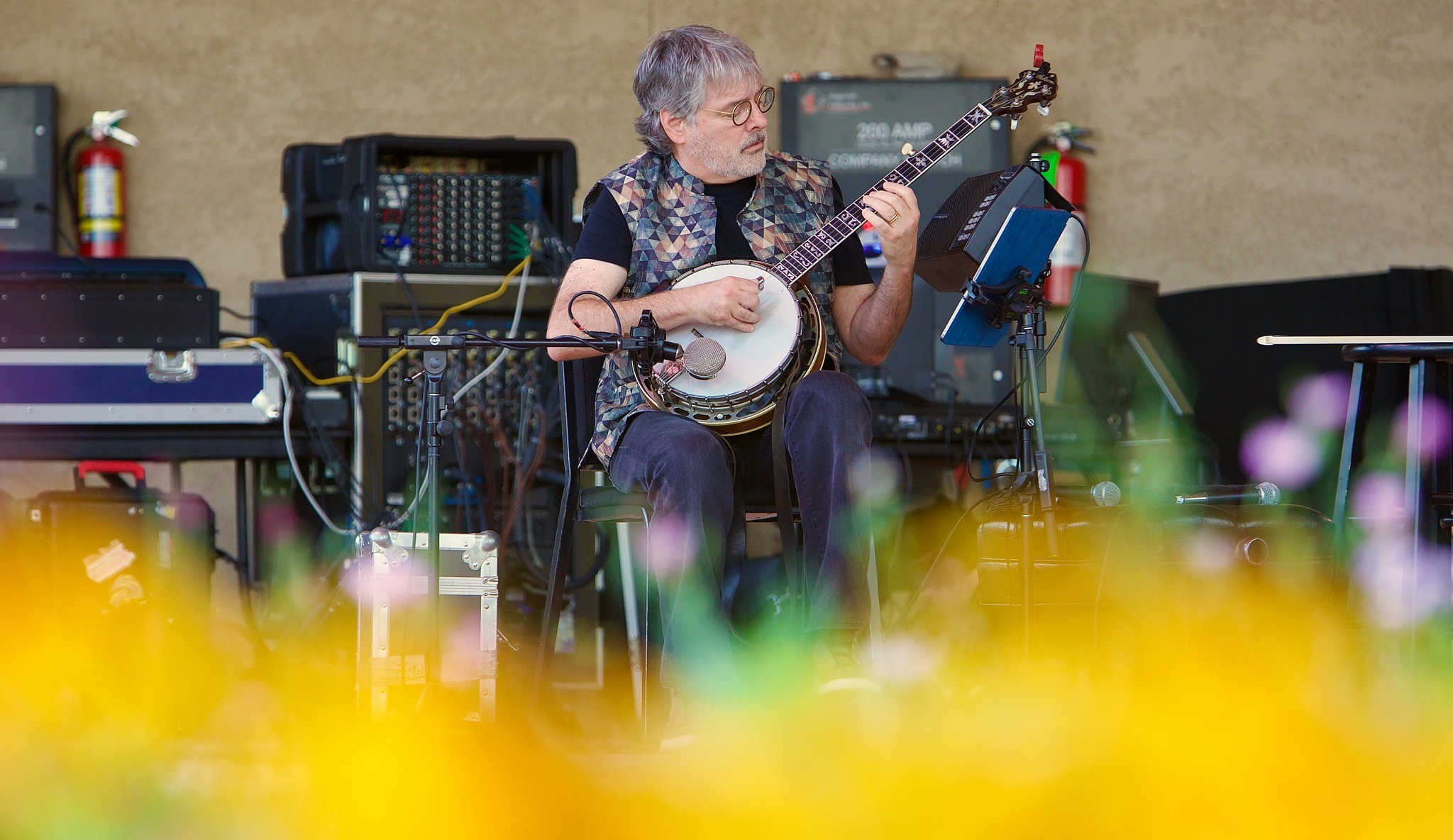
Ten minutes from that point, the skies opened and everyone was the better for being asked to leave. Appreciative for what they had shared in and witnessed, nary a soul could be heard calling for a refund, reschedule or a redo, but rather left with a story full of moments that could only be described as divine.
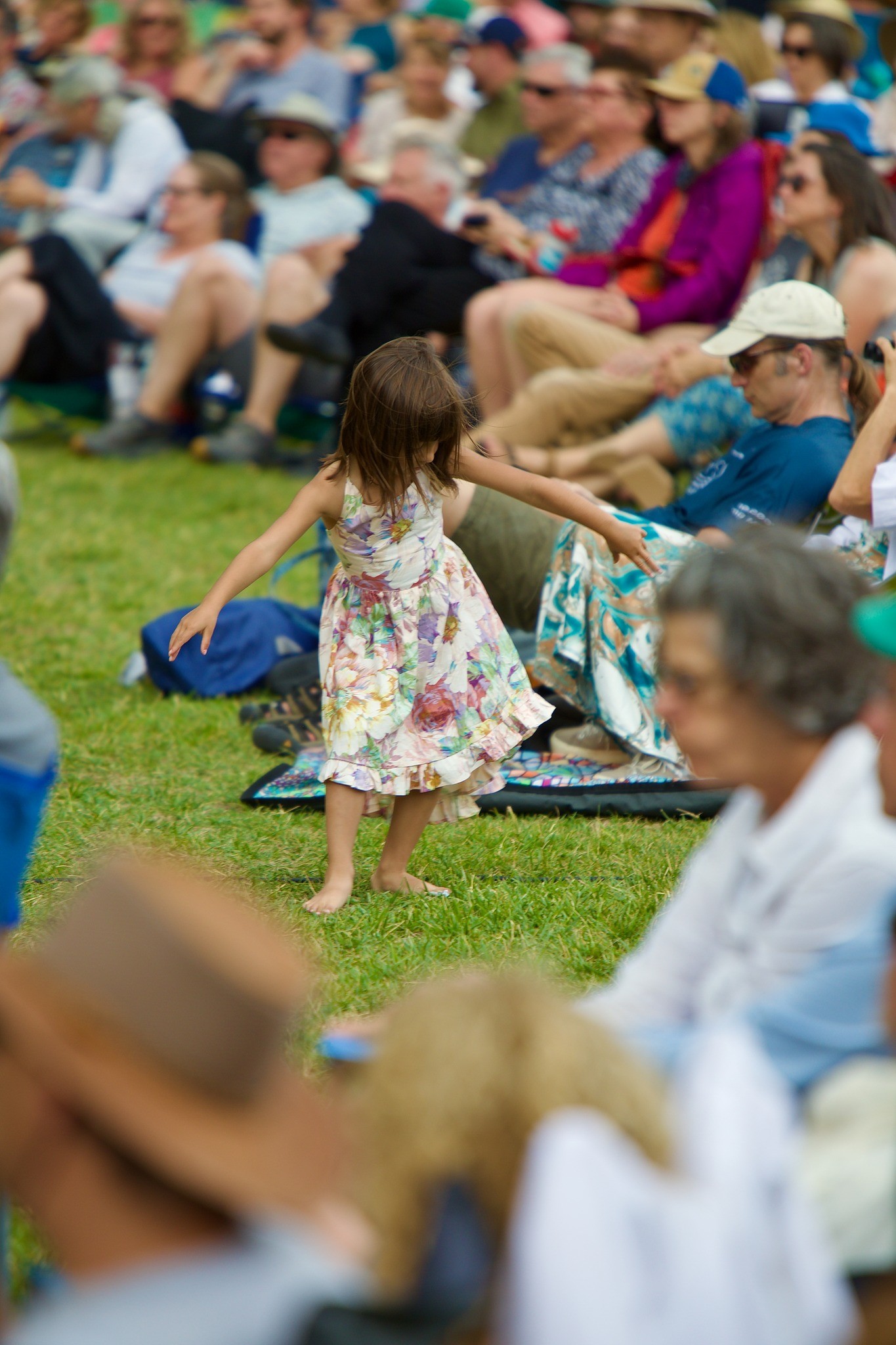
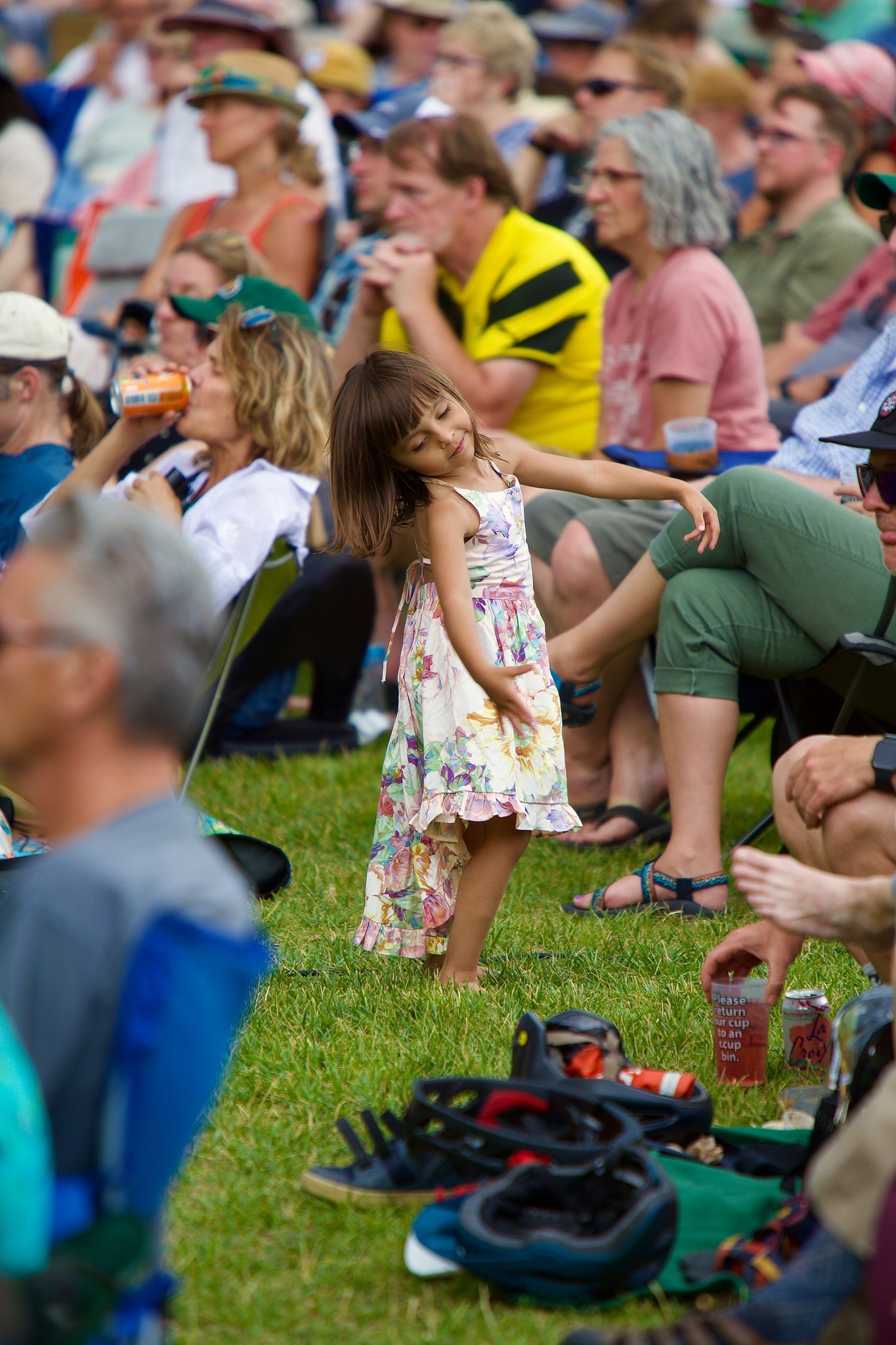
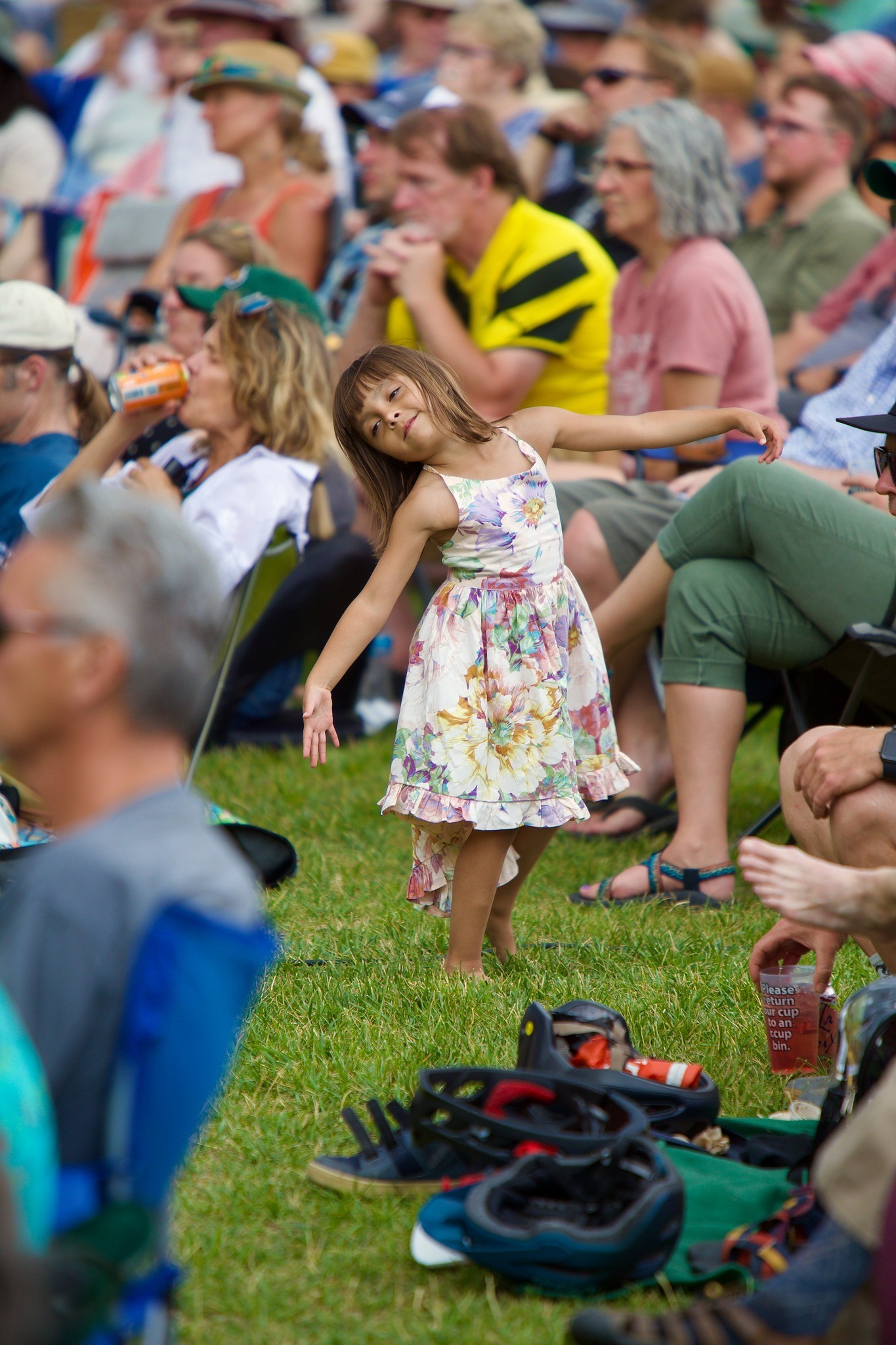
Although only half of the album was performed, it is easy to say that anyone who attended Saturday’s show more than likely went home to relisten to what they had heard and take in all that they hadn’t. Although collaboration often happens among great players, what was performed in the gardens this past weekend was part of a larger conversation and relationship that has been going on with these players for decades. When one hears the best give what they were born to do, it is incredible, but when one listens to four brothers share the best of themselves, it is divine and what comes of it is otherworldly.